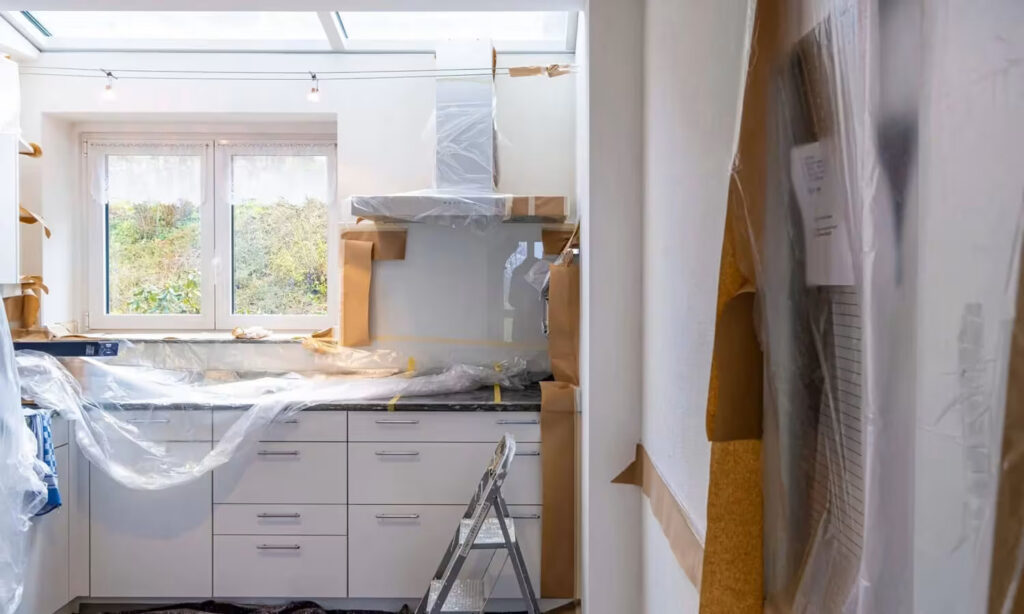
Are you dreaming of giving your home a fresh new look? A sleek kitchen upgrade, a bathroom refresh, or a full-scale extension can add style, space, and value to your home. But let’s be real. Home renovations come with a price tag, and figuring out how to pay for them can feel overwhelming.
Many Kiwis are looking for smart ways to fund their home projects, and the good news is that there are plenty of options available. From home loans and personal lending to government-backed initiatives, let’s explore the best ways to make your renovation dreams a reality.
Understanding Renovation Costs in New Zealand
Before diving into financing options, it’s important to get a clear picture of how much your renovation might cost. Prices can vary depending on the scope of work, the materials used, and whether you need consent from the council.
- A kitchen renovation can range from $20,000 to $50,000+, depending on the size and level of finishes.
- A bathroom upgrade typically costs $15,000 to $50,000, especially if you’re moving plumbing fixtures.
- A house extension (adding a new room or expanding living areas) could set you back $100,000 to $400,000 or more.
- Full home renovations often range between $50,000 to $780,000, depending on the extent of the work.
Overall, the cost range provided by the New Zealand Certified Builders Association matches these general estimates, though actual costs can vary depending on location, materials, and how complex the project is. If you’re thinking about financing your renovation, getting the best mortgage advice can make all the difference. It will help you find the right option without stretching your budget too thin.
In cities like Auckland, where median house prices sit around $949,000 as of January 2025, labour and material costs can push budgets even higher.
So before you start looking for financing, it’s a good idea to nail down your budget. That way, you’ll know exactly how much you need to borrow and can avoid stretching yourself too thin financially.
Start by gathering quotes from trusted builders to pin down a realistic figure. At Oliver Broomfield Mortgage & Insurance Advisers, we recommend adding a 10-20% contingency fund to account for surprises like hidden rot in an older villa or skyrocketing timber prices, which have climbed 10% since 2023 due to global supply pressures. Once you’ve got your number, it’s time to explore your funding options.
Your Financing Options For Your Home Renovation
Once you have an idea of your renovation costs, the next step is deciding how to fund it. Here are some of the most popular options available to Kiwi homeowners:
Mortgage Top-Up or Redraw
If you’ve built up equity in your home or made extra mortgage payments, a top-up or redraw could be a smart way to fund your renovation.
How it works: If your home’s value has increased or you’ve been paying more than the minimum on your mortgage, you may be able to access those extra funds through a top-up or redraw facility. With New Zealand’s average mortgage rate sitting around 6.2% (according to the Reserve Bank of New Zealand), this option is often more affordable than other types of loans.

Pros:
- Lower interest rates compared to personal loans or credit cards.
- Can be a cost-effective way to finance renovations.
- Uses funds you’ve already contributed, reducing the need for additional borrowing.
Cons:
- May come with redraw fees or restrictions, depending on your lender.
- Increases your overall mortgage balance, which means higher repayments over time.
- Tip: Check with your mortgage adviser to see if a top-up or redraw is possibility and what fees apply
Extending Your Home Loan
If you have equity in your home, extending your existing mortgage can be one of the most cost-effective ways to finance your renovation.
How it works: If your property has increased in value, or if you’ve paid down a chunk of your mortgage, you may be able to top up your home loan to cover your renovation costs.
Pros:
- Lower interest rates than personal loans or credit cards.
- Flexible repayment terms.
- Potential to add value to your property in the long run.
Cons:
- Increases your mortgage balance, meaning higher repayments over time.
- You’ll need to meet your bank’s lending criteria to qualify.
- Tip: Talk to your mortgage broker to see if this is a good option for you.
Second Mortgage (Home Equity Loan)
If you don’t want to refinance your existing mortgage but still need a large sum for renovations, a home equity loan (or second mortgage) could be an option.
How it works: This type of loan allows you to borrow against the equity in your home but works as a separate loan from your main mortgage.
Pros:
- Access to larger loan amounts.
- Can be a good alternative if your main mortgage has a low interest rate locked in.
Cons:
- Your home is used as security, meaning there’s a risk if you can’t make repayments.
- Can come with extra fees and higher rates than a home loan top-up.
- Tip: If you're considering this, consult a mortgage adviser to see if it’s the right move.
Construction Loans for Major Renovations
For full-scale home renovations or rebuilds, a construction loan is worth considering.
How it works: Unlike traditional home loans, construction loans are released in stages as the renovation progresses. This helps ensure funds are used specifically for the renovation and not spent elsewhere.
Pros:
- Designed for large renovation projects.
- Funds are released progressively, reducing interest costs.
Cons:
- Requires more documentation and lender approval at each stage.
- Interest rates may be slightly higher than standard home loans.
- Tip: If you’re doing a major reno, chat with your mortgage broker about whether a construction loan is the right fit.
Zero Interest / or 1% Interest Loans for Energy-Efficient Upgrades
If part of your renovation includes making your home more energy-efficient, you may qualify for an interest-free loan.
How it works: Some lenders offer up to 80,000 of low fee and sometimes even interest free loans for installing insulation, heat pumps, ev chargers, double glazing, solar panels, and other energy-efficient improvements.
Pros:
- Helps make your home more sustainable.
- Interest-free borrowing reduces your costs.
Cons:
- Only available for certain types of renovations.
- Loan amounts may be limited.
- Tip: Check with your mortgage broker to see if you qualify for energy-efficiency funding.
How to Choose the Right Funding Option
With so many mortgage options available, how do you decide which one is best for you? Here are a few key things to consider:
- Interest Rates & Repayment Terms: Look for the lowest rate and most flexible repayment terms that suit your budget.
- Loan Amount & Affordability: Borrow only what you need and ensure you can comfortably manage repayments.
- Eligibility & Application Process: Some loans require more paperwork and time to process, so consider how quickly you need the funds.
- Long-Term Impact on Your Mortgage: If you’re adding to your home loan, think about how it will affect your total repayment timeline.
What If Something Goes Wrong? Protecting Your Investment
Renovation projects don’t always go as planned. What if your builder folds mid-job? While New Zealand’s Licensed Building Practitioners (LBP) scheme provides some protection, it’s not foolproof. At Oliver Broomfield, we go beyond just arranging your loan. We help you mitigate risks, ensuring you work with reputable builders and understand your legal rights.
We also recommend staying informed through Consumer NZ and the Ministry of Business, Innovation & Employment (MBIE), both of which provide valuable insights on builder protections and contract best practices.
The Oliver Broomfield Difference
Most people don’t think twice before signing a loan agreement until they hit an issue. We make sure you don’t get caught out. At Oliver Broomfield Mortgage & Insurance Advisers, we don’t just set up your financing, we help you navigate every detail so that your loan works for you, not against you.
Before you commit to any renovation loan, book a consultation with us. A small investment in expert mortgage advice now can save you thousands later.
Thinking about Home Renovation in New Zealand? Let’s chat! Get in touch with our mortgage experts today to explore your options and get a plan in place.
